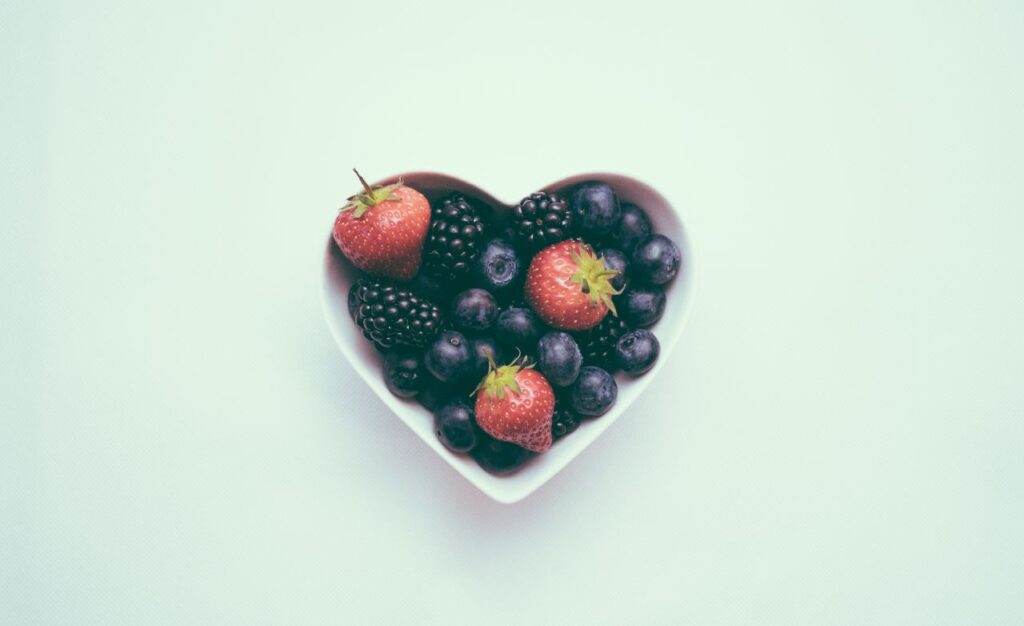7 Super Healthy Foods to Have in Your Kitchen



Whether you’re looking to lose weight, optimize your nutrition, or both, having a well-stocked kitchen is essential.
Everyone knows that fruits and vegetables are essential for healthy living, but there are a few unpopular items that should be considered as staples in your kitchen as well.
#1 – Coconut Oil
Although saturated fats have had a bad rap for as long as I can remember, not all saturated fats are created equal and that certainly holds true for coconut oil and its numerous health benefits.
Coconut oil is a rich source of beneficial medium chain fatty acids (MCFAs) particularly lauric acid, which is known for its antimicrobial properties. 1
The chemical make-up of this type of fat makes it more usable by the body, thereby putting less strain on your digestive system and making it a direct source of energy by your liver as opposed to being stored as fat.
It has also been shown to help stimulate your metabolism and increase energy expenditure, which can therefore help with weight loss. 2,3,4
When it comes to cooking, coconut oil is also the most resistant to mild heat, so instead of olive oil, butter, canola oil (mostly GMO), seed oil or any other vegetable oil (worst type of oil), switch to coconut oil instead.
The first time I used coconut oil for lightly sauteing onions, I was worried that our meal would end up smelling like tropical tanning oil, but I was pleasantly surprised with the buttery flavor that it gave instead.
So I encourage you to give it a try.
#2 – Organic Grass-Fed Butter
After being shunned for so many years, good old butter is making a comeback thanks to the paleo-driven community.
The catch however is to choose the right type of butter.
Butter from organic grass-fed cows is completely natural and contains many beneficial nutrients such as vitamins A, D, E, and K2 (which is rare in a modern day diets) as well as important trace minerals like manganese, chromium, zinc, copper, selenium, and iodine.
Like coconut oil, it is a healthy source of fat including short and medium chain fats that are anti-microbial, support immune function, and boost metabolism.5
It also has the perfect ratio of omega-3 to omega-6 fats and contains high amounts of conjugated linoleic acid (CLA) which is known for lowering body fat percentage.6
And of course, it tastes really good.
Now this doesn’t mean that you should start eating bucket loads of butter.
What I am suggesting is that a little butter is perfectly alright for adding flavor to your meals.
It is best to consume your butter cold or at room temperature because extreme heat, such as frying will destroy the nutrients and create harmful free-radicals.
#3 – Avocados
“But they’re so high in fat!” Yes, and that is precisely why they are so healthy for you.
These green heroes also provide close to 20 essential nutrients including more than twice the amount of potassium than bananas, vitamin E, B vitamins, folic acid and fiber.
For so many years, we’ve been scared-mongered into eating low-fat diets and were told to avoid anything high in fat and calories.
While the sales of fat-free and low-fat food products soared in the 80’s, so did everyone’s waistlines over the years.
It is obvious that healthy fats are not to blame, but rather the refined and processed carbohydrate-laden food-products that still fill the supermarket isles today.
I eat an avocado almost every day. In fact, when I started eating more healthy fats, I noticed a reduction in my body fat and more supple skin.
So don’t be scared of healthy fats and question anyone who tells you to follow a low-fat diet.
#4 – Kale and Other Dark Greens
Kale is the new popular kid on the block and for good reason.
A one-cup serving has the same amount of calcium as a cup of milk and almost as much vitamin C as an orange.
It is also an excellent source of vitamin A, among many other vitamins and minerals, which is known to be good for the eyes and skin.
While kale is the latest health trend, all dark greens play an important role so vary your vegetables to maximize your nutrients.
Unfortunately, there are only so many salads that a person can eat in a day, so I like to juice my greens for a boost of nutrition. My favorite kale juice recipe for beginners is the following:
4 carrots
2 handfuls of kale leaves
2 cucumbers
Serve with ice
Try to buy as much organic produce as possible to reduce your exposure to chemicals.
If you can’t afford to buy everything organic, then be selective and use the Dirty Dozen and Clean 15 lists as guidelines.
#5 – Organic Pasture Raised Eggs
To make a long story short, eggs from organic pasture-raised chickens are one the healthiest foods on this planet and no, they don’t cause cholesterol.
That’s a big myth.
Is it safe to eat eggs every day? Yes, as long as you don’t fry the life out of them and you buy the best eggs. Extreme heat damages the nutrients and causes oxidation.
Eggs are best eaten in their natural state – raw. But if you can’t stomach the idea of eating raw eggs, then blend them into a smoothie to mask the flavor and consistency, which is what I do.
And if you’re worried about the salmonella risk, the next best option is to soft-boil the eggs in boiling water for two to three minutes.
#6 – Plant- & Animal-based Omega-3’s
Omega-3 is an essential fat that can only be acquired from food and it plays a crucial role in brain function, normal growth and development, and in reducing inflammation throughout the body.
There are basically two main sources and three main categories of Omega-3 fats: ALA (mostly from plants), DHA and EPA (from animal sources).
The plant-based Omega-3, ALA, needs to get converted into DHA or EPA in order to be used correctly by the body but only a very small percentage actually gets converted.
On the other hand, animal-based Omega-3 such as clean fish, marine algae, fish oil, or pastured eggs, already have DHA and EPA present, making it a superior source of Omega-3.
Here’s a short list of the best Omega-3 sources:
| Omega-3 ALA | EPA & DHA |
| Flax seeds Chia seeds Hemp seeds
Pumpkin seeds
Walnuts |
Salmon Mackerel Herring
Sardines
Anchovies
Tuna
Marine algae
Eggs |
If you don’t eat fish, then fish or krill oil supplements from a reputable source can do the trick as well.
Check that your supplement has at least 200mg of EPA and 200mg of DHA or 400mg of these two combined, but always check with your doctor for your unique dosage as it varies with certain health conditions and any medications you may be taking.
#7 – Kefir and Fermented Foods
More and more scientists are linking overall health to the state of your gut and digestive tract.
One of the best ways to keep your colon environment clean and healthy is by eating fermented foods, such as kefir.
Kefir is a cultured milk beverage that looks and tastes similar to the drinkable yogurt (a.k.a. Laban) but is far superior to yogurt because of its beneficial yeast and additional strains of healthy bacteria that create ideal conditions in the digestive tract.
Since I began sharing my grains with other people, I’ve received many positive comments like less bloating and less upset stomachs in general.
And just recently, one woman informed me that she hasn’t been sick in over a year and attributes her strong immune system to her daily intake of kefir and cultured vegetables.
While their testimonials aren’t scientific facts by any means, they are in my opinion reasons to consider adding fermented foods to our diets.
If anyone else has had similar experiences or something else to add, I would love to hear your story.
Similarly, fermented vegetables have also been shown to have many medicinal benefits7,8 which is why I will be experimenting with making homemade fermented vegetables and sharing my experiences with you soon.
B’s Bottom Line
If you need to lose weight, aim to get healthy first.
Healthy living is a continuous journey of seeking betterment, and weight loss is a byproduct of healthy living.
Weight loss is not about deprivation, counting calories and over-exercising; it is about listening to your body and adding in more of the nourishment that it needs.
As your body becomes more nourished, you will begin to crave healthier foods, regulate your hunger, have more energy, and become more interested in being physically active; a positive cycle that leads to weight loss.
It all begins with what you choose to put in your mouth.
To help you get started, I want you to choose one or two items that you can immediately introduce at home, then let me know in the comments below which super healthy foods you chose.
If you found this post useful, chances are your friends and family will too. Hit that button and share the love!

Responses